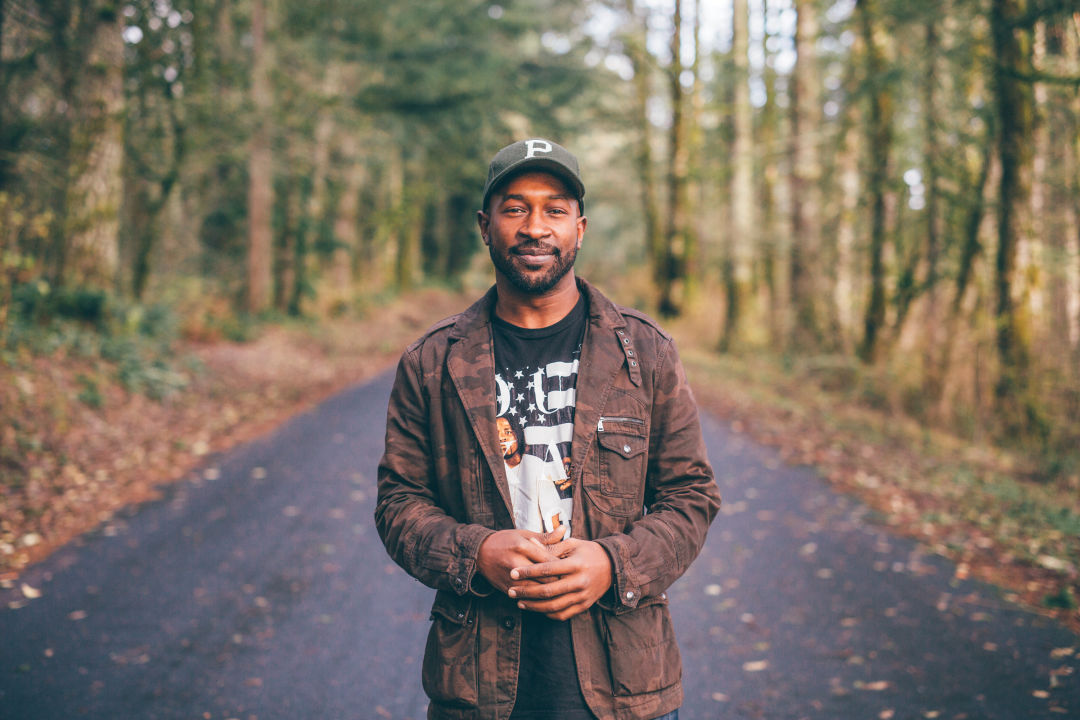Eternal Optimist Jesce Horton Talks Cannabis in the New Decade

As multi hyphenates go, Jesce Horton’s is a mouthful. The engineer-cannabis enthusiast-entrepreneur-advocate-activist-horticulturalist has become a poster child for the nation’s tumultuous relationship with weed. And his cannabis journey has come full circle.
“It’s just another reminder for me that the universe is working in a lot of interesting ways, and I’m just trying to be like water and flow with it,” he says. “It’s definitely odd that I found myself in the cannabis industry, but I’m really happy, really thankful that it happened.”
In the sobering last third of the Netflix doc Grass Is Greener, which lays bare the painful repercussions overpolicing has had on Black communities for something as innocuous as marijuana use and possession, the story zooms in on Portland’s booming—and overwhelmingly white—cannabis industry. Horton, one of Portland cannabis’s few leaders of color, is front and center. In his element in his grow room, waxing poetic about harvest-altering variables, Horton shares his experience growing up on the East Coast and being arrested three times for marijuana possession, each time for less than two grams of cannabis (and one time for just a seed). That criminal record followed him everywhere, and he has a lost college scholarship to prove it. It wasn’t until years later that Horton was exposed to legal cannabis culture overseas.
“I was living in Germany for about a year and a half before I moved to Oregon. And when I was there, the most exciting thing to me was being able to jump on the train and go to Amsterdam whenever I wanted,” he says.
Inspired, Horton relocated to Portland in 2012 to pursue a career cultivating licensed cannabis. He is now one of the state’s most influential cannabis industry leaders, a cofounder of the state’s Minority Cannabis Business Association (MCBA) as well as the NuLeaf Project with wife Jeannette Ward Horton. The NuLeaf Project provides grants to BIPOC cannabis entrepreneurs who face capital, educational, and legal obstacles to entering the industry.
“There’s so many different consumers of every color, so many different ages, backgrounds, demographics,” Horton says. “The fact that the industry and the growth and the prosperity of the economic opportunity is not reflective of that ... it really limits the growth opportunity of the industry as a whole.”
Right now, Horton’s days are mostly geared toward his premium cannabis cultivation company, LOWD, which has a 6,500-square-foot indoor cultivation facility near Portland.
“LOWD is my primary focus. It’s my passion, it’s my love,” Horton says.
LOWD’s weed is pristine, and trimmed right into the jar it’s sold in, which means the customers will be the first ones to touch it. His favorite strain? “Without a doubt, it’s 503 Wifi. That, to me, has the absolute best high, the best feeling. It’s the most energizing.”







